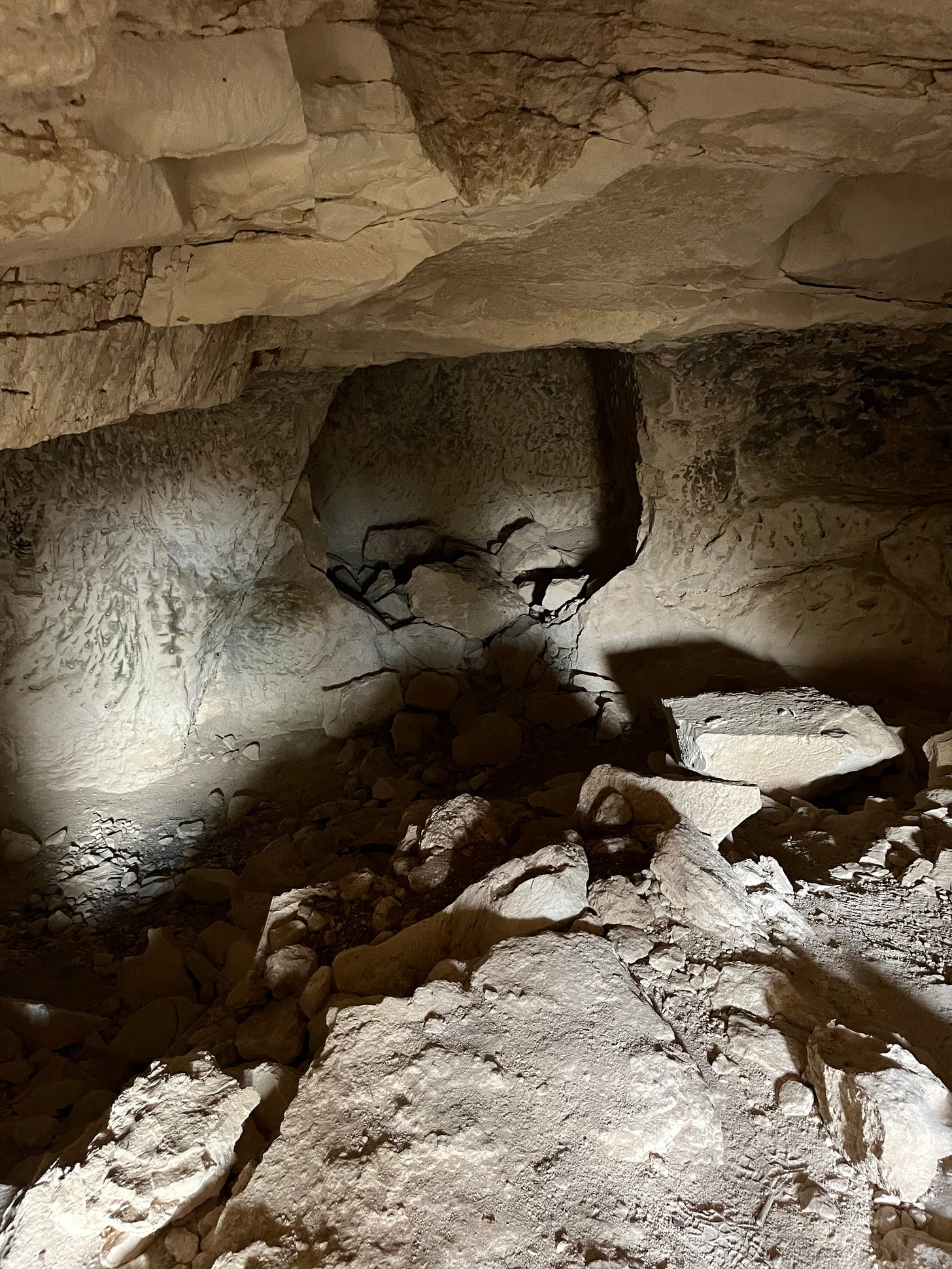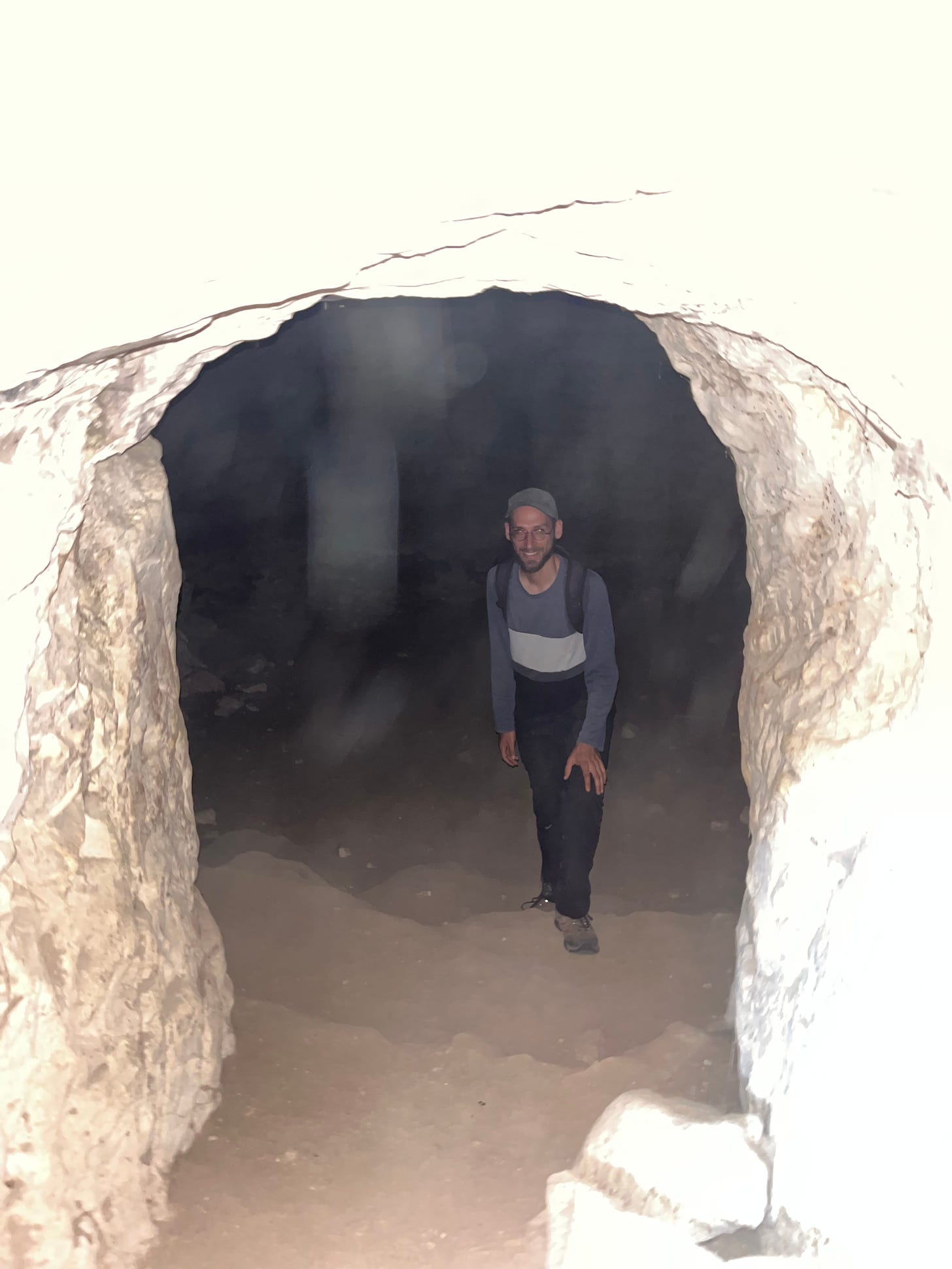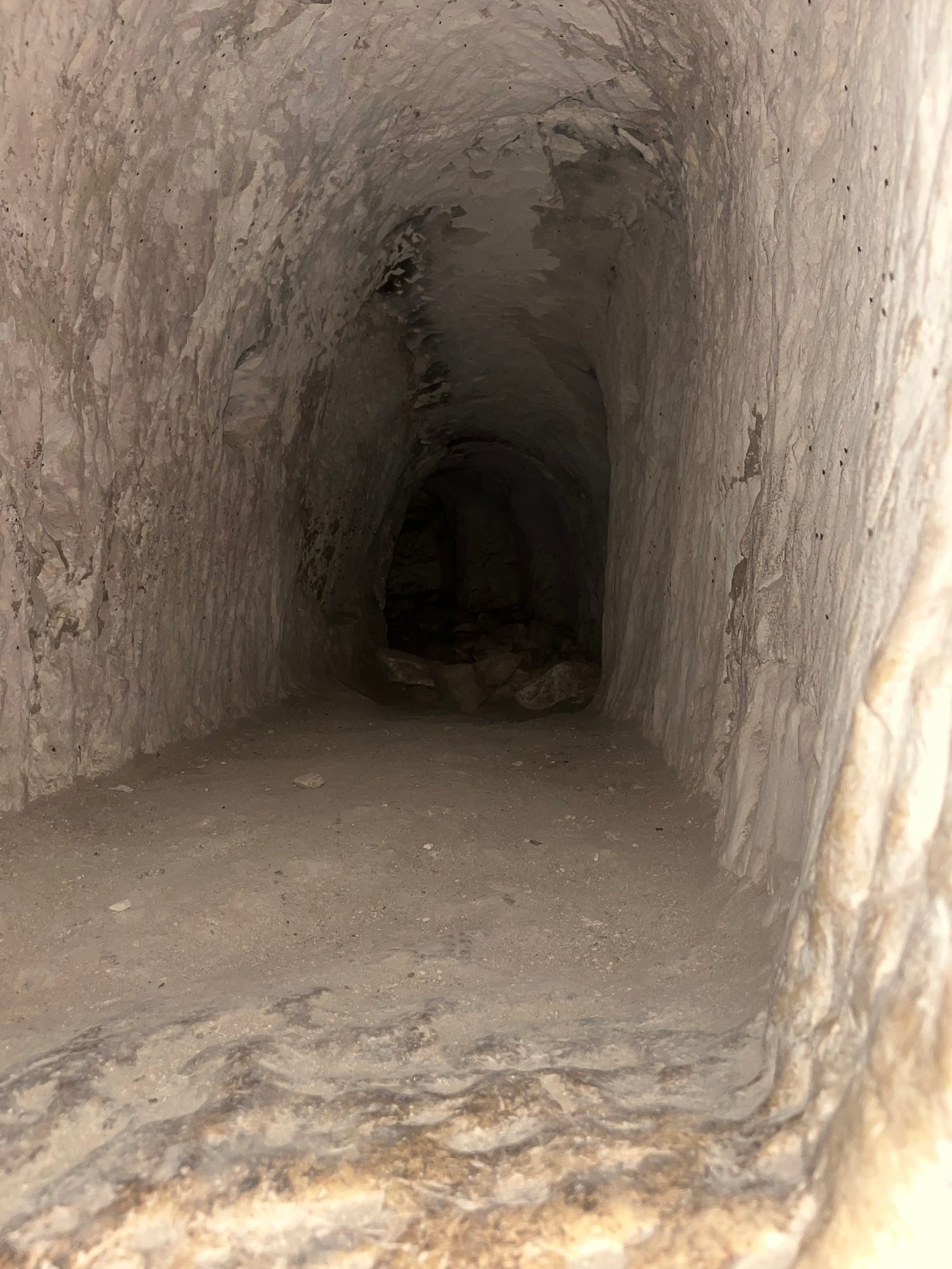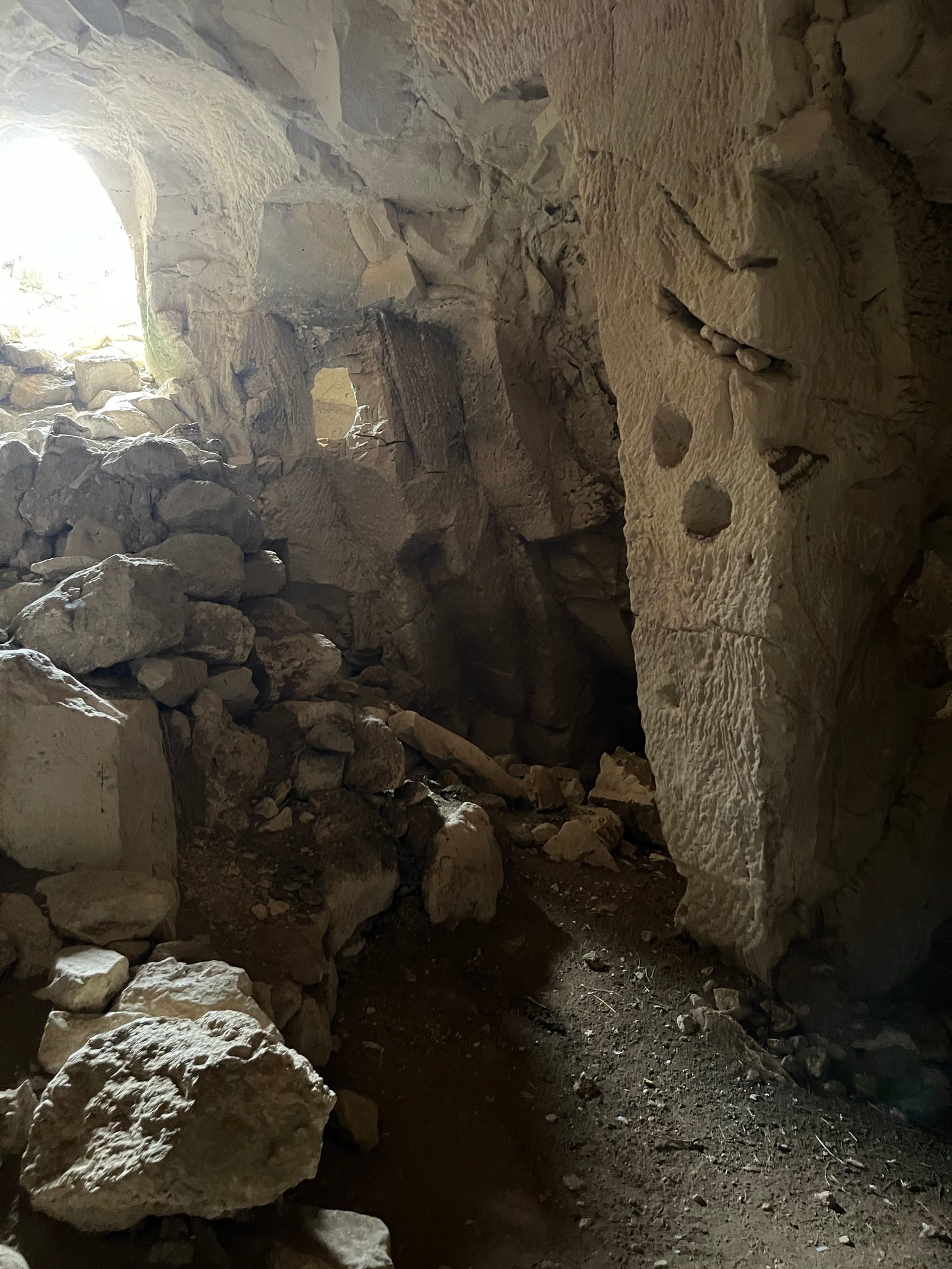The IDF is battling Hamas in the Gaza Strip. Much of the challenge is that Hamas is underground in extensive tunnel networks.
Long before there was a State of Israel for Hamas to wish to destroy, we too dug tunnel networks: not as terrorists targeting civilians, but to hide from marauding Roman armies during the Bar Kochba revolt (132-135 CE).
The area of Israel that I’m blessed to call home, the Judean lowlands (read about there in The Healthy Jew’s Guide for Journeying in Israel), contains hundreds of these labyrinths.
Many are well known. Tourists from all over the world love to crawl through their shafts, and are awed whenever a sharp turn and then a drop open up into a large cavern carved into the soft limestone. Others tunnels, usually in places less accessible by car, are known only to dedicated hikers of Natural Israel.
One of the casualties of this tragic war is that Israel’s hikers have lost their natural habitat to the threat of Hamas rockets that aren’t worth an Iron Dome interception because they’re heading toward “open areas.”
So these days most Jews think only about the tunnels of Gaza, leaving our own tunnels for happier times. I get that.
But here at The Healthy Jew, if only for a few moments each week, we exchange the images of pain and fear with pictures of purpose and hope. Moshe’s (Moses) failed spies cried that Israel is a “land that eats its inhabitants”; we’re joining the response of Yehoshua (Joshua) and Calev (Caleb): “the land is very, very good!”
So I’d like to show you one beautiful cistern and tunnel that I discovered on a hike with a good friend, the renowned tour guide Nesanel Eisenman. (Of course, this was before October 7.)
We had spent the morning roaming the hills of Givat Gad, a huge, deserted reserve on the southern edge of the Judean lowlands, right before where the green grasses and shrubs abruptly turn into the Negev’s desert brown. It’s a beautiful, quiet area, crammed with ancient sites and thriving wildlife. I hope to tell you more about it another day.
As we were heading back, we noticed an unusual large ruin to our left. After jumping over rocks and bushes to reach it, we found an opening to a large underground water cistern attached to one of Bar Kochba’s lesser-known tunnels.
The Amud Anan social hiking app told us this is the Zeita ruin, and the Palestine Exploration Fund map, meticulously crafted by British surveyors in the 1870’s - and now superimposed onto the Amad Anan database - confirmed that the site has been known, at least to a lucky few, for centuries.





No comments:
Post a Comment